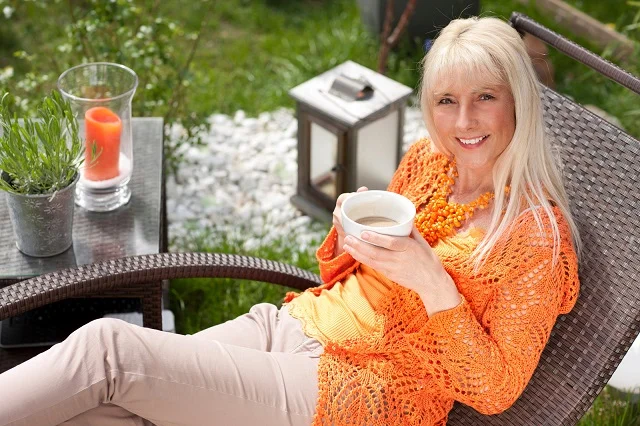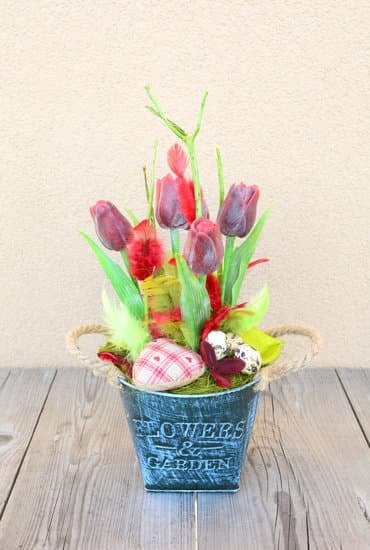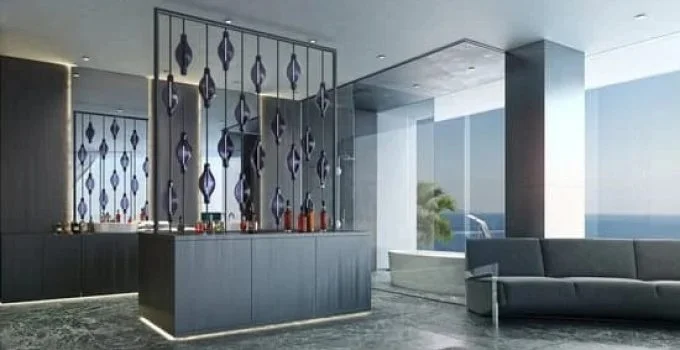Decorative mirrors have the extraordinary ability to transform any space, adding a touch of elegance and style. They can serve as both functional and artistic pieces, reflecting light and creating an illusion of depth in a room. With the rising trend of do-it-yourself (DIY) projects, many individuals are now opting to create their own decorative mirrors at home. This allows for customization according to personal taste and budget, while also providing a rewarding creative experience.
The appeal of making your own decorative mirror lies not only in its cost-effectiveness but also in the opportunity to personalize it to fit your unique aesthetic preferences. By crafting your own mirror, you have the freedom to choose from an array of materials, designs, and embellishments that will best suit your style and complement the existing decor in your space.
In this article, we will explore the art of DIY decorative mirrors, guiding you through each step of the process. From gathering essential supplies to assembling your masterpiece and adding finishing touches, we will provide you with detailed instructions and insightful tips. We will also delve into different mirror design options, showcasing inspiring examples for every room in your home. Additionally, we’ll offer guidance on maintaining the beauty and longevity of your decorative mirror once it’s completed.
So if you’re ready to embark on a creative journey that will breathe new life into your space, let’s dive into the world of DIY decorative mirrors.
Gathering Materials
To start creating your own decorative mirror, you will need to gather the essential supplies. Here is a comprehensive list of materials that you will need:
- Plain mirror: Choose a mirror that fits the desired size and shape for your project. You can find affordable options at home improvement stores or repurpose an old mirror.
- Wooden frame: Select a wooden frame that complements the style and aesthetic you want to achieve. Consider using reclaimed wood or repurposing an old picture frame for a budget-friendly option.
- Adhesive: Use a strong adhesive that is suitable for attaching the mirror to the frame and securing any decorative items. Industrial-strength glue or adhesive tape can work well.
- Decorative items: Get creative with the decorations. This could include seashells, beads, mosaic tiles, faux flowers, or any other small objects that match your desired design theme.
- Paint or wallpaper: If you want to customize the wooden frame, choose paint or wallpaper in colors and patterns that coordinate with your overall design concept.
- Tools: Gather essential tools such as scissors for cutting materials, a glue gun for securing decor elements, and any other materials needed based on your chosen design.
It’s important to note that there are alternative materials available depending on your budget and availability. For example, instead of purchasing a plain mirror, consider using mirrored glass panels cut to size. Instead of a wooden frame, explore options like metal frames or even fabric-wrapped frames if you prefer a softer look.
By gathering these essential materials, you’ll have everything you need to create your decorative mirror masterpiece. Don’t forget to consider your budget and personal preferences when selecting the supplies for your DIY project.
Selecting the Perfect Mirror Design
When it comes to creating a decorative mirror, selecting the perfect design is crucial to achieving the desired aesthetic and complementing your existing decor. There are various mirror design options available, ranging from vintage charm to modern elegance. Here are some tips on selecting the perfect mirror design for your DIY project:
- Consider Your Existing Decor: Before diving into designing your decorative mirror, take a moment to evaluate your existing decor style. If you have a vintage-inspired space with antique furniture and ornate accents, a vintage-style mirror would fit in seamlessly. On the other hand, if you have a modern or minimalist home, consider opting for a sleek and simple mirror design.
- Reflect Your Personal Style: Your decorative mirror should be an expression of your personal style and taste. Take inspiration from different design styles such as bohemian, industrial, or rustic and choose a mirror design that resonates with you. Incorporate specific elements such as intricate patterns or unique shapes that reflect your personality.
- Create Cohesion: To create a cohesive look in your space, think about how the decorative elements of the mirror can tie into other elements in the room. For example, if you have brass accents throughout the space, consider choosing a mirrored frame with brass embellishments. This will help to create visual harmony and ensure that your decorative mirror feels like an integral part of the overall design.
By carefully considering these factors and exploring different design options, you can select a mirror design that adds beauty and enhances the ambiance of any room.
Tips for Incorporating Specific Decorative Elements
Depending on the chosen design style for your decorative mirror, there are specific decorative elements you can incorporate to create a cohesive look:
- Vintage Charm: For those seeking a vintage-inspired look, consider adding ornate carving details on the wooden frame or using antique-inspired mirror tiles. You can also incorporate vintage handles or knobs to add a touch of elegance. Additionally, antique-inspired wallpaper is an excellent option for creating a vintage backdrop for the mirror.
- Modern Elegance: If your space has a modern or minimalist aesthetic, opt for clean lines and simple shapes in your mirror design. Using a frameless mirror or a sleek metal frame can enhance the modern feel. To add elegance, consider incorporating crystals or metallic accents as embellishments.
- Bohemian Vibes: For a bohemian-inspired decorative mirror, think about using natural materials such as rattan or wicker for the frame. Add colorful beads, feathers, or macrame details to create a playful and eclectic vibe. Consider using textured wallpaper as a backdrop to further enhance the bohemian look.
When choosing specific decorative elements, always keep in mind the overall style and atmosphere you want to achieve in your space. By incorporating these elements thoughtfully, you can create a decorative mirror that perfectly suits your taste and brings charm to any room.
Step-by-Step Guide
Preparing the Mirror
Before assembling your decorative mirror, it is essential to prepare the mirror itself. Start by cleaning the surface of the mirror with a gentle glass cleaner and a lint-free cloth. Ensure that all smudges, fingerprints, and dirt are removed to achieve a pristine finish.
Once the mirror is clean, you may consider priming it for better paint adhesion if you plan on painting the frame or adding any other decorative elements directly onto the mirror surface. Apply a thin coat of primer specifically designed for glass surfaces and allow it to dry completely before proceeding.
Measuring and Cutting the Wooden Frame
To create a polished look for your decorative mirror, measure and cut the wooden frame precisely. Begin by measuring each side of the mirror to determine the dimensions for your frame.
Using these measurements, mark them onto your chosen wooden material, ensuring that you account for any overhang you desire. Use a saw or miter box to carefully cut along these marked lines. It is important to prioritize safety during this step by using appropriate protective gear and following proper cutting techniques.
Once the pieces are cut, ensure they fit snugly around the edges of your mirror before proceeding with assembly.
Applying Adhesive and Arranging Decorative Items
With both your prepared mirror and wooden frame at hand, it is time to assemble them using adhesive. Apply a strong adhesive suitable for glass/mirror bonding along the backside of one piece of your wooden frame while avoiding excessive amounts that could seep through.
Carefully align one edge of the wooden frame with one edge of the mirror, pressing firmly to ensure proper adhesion. Repeat this process with each side until all pieces are securely attached to create a complete frame around the mirror.
Once the frame is in place, you can start arranging your chosen decorative items onto it. Whether you want to embellish the entire frame or create selective designs, use a glue gun to carefully affix the decorations in your desired pattern. Take your time and ensure that each piece is attached securely for longevity.
Throughout the process of assembling your decorative mirror, it is important to regularly step back and assess your progress. Check for any unevenness, loose pieces, or areas that require adjustment. By focusing on precision and quality during each step, you can create a stunning decorative mirror masterpiece that will enhance the aesthetic of your space.
Unleashing Creativity
Adding those final touches to your DIY decorative mirror can truly elevate its overall design. This section will explore various ideas and techniques to help you unleash your creativity and personalize your mirror even further.
Painting the Frame
One way to add an extra pop of color or bring out the theme of your decorative mirror is by painting the frame. Consider using acrylic paints or spray paints in a color that complements the existing decor in your space. Experiment with different techniques, such as stenciling or ombre effects, to create unique patterns and textures on the frame.
Incorporating Lighting Elements
To create an enchanting effect, you can incorporate lighting elements into your decorative mirror. Wrap fairy lights or LED strips around the frame or attach small string lights behind the mirror for a subtle glow. This not only adds visual interest but also creates a cozy and magical atmosphere in any room.
Additional Decorative Embellishments
If you want to further personalize your decorative mirror, consider adding additional decorative elements. Dried flowers, seashells, or beads can be glued onto the frame or arranged around the edges of the mirror for a whimsical touch. You can also experiment with ribbons, feathers, or fabric trims to match your desired aesthetic.
Remember, when adding finishing touches to your decorative mirror, it’s important not to overcrowd the design. Choose one or two elements that complement each other and enhance the overall look without overwhelming it.
DIY Decorative Mirror Ideas for Every Room
Decorative mirrors are not only functional but also serve as stunning focal points in any room. They have the ability to add depth, light, and style, transforming the overall ambiance of a space. With their versatility, decorative mirrors can be incorporated into various room styles and designs. In this section, we will explore creative DIY ideas for using decorative mirrors in different rooms of your home.
Living Room:
The living room is often the centerpiece of a home, where we entertain guests and spend quality time with loved ones. A well-placed decorative mirror can enhance the visual appeal of a living room and make it feel more spacious.
Consider incorporating a large ornate mirror above the fireplace or behind the couch to create a sense of elegance and grandeur. Alternatively, if you have a small living room, strategically placing multiple smaller mirrors on one wall can create a unique and eclectic look that also reflects light.
Bedroom:
Decorative mirrors can make an impact in bedrooms by adding both functionality and style. For those who prefer a vintage or romantic aesthetic, an antique mirror with intricate details can become a striking focal point on a feature wall or above a vanity table. Alternatively, for a more modern look, consider incorporating minimalistic circular or geometric-shaped mirrors in various sizes on one wall to create an interesting composition.
Bathroom:
Mirrors are essential in bathrooms for practical reasons such as grooming and applying makeup. However, they can also elevate the design of the space by adding visual interest and reflecting light. In smaller bathrooms, opt for larger mirrors that extend from vanity to ceiling to create an illusion of space. For larger bathrooms with ample counter space, consider framing your DIY decorative mirror with LED strip lights for extra illumination and an elegant touch.
By carefully selecting the appropriate size, style, and placement of decorative mirrors in each room of your home, you can enhance its overall design and atmosphere. The possibilities are endless when it comes to DIY decorative mirror ideas, so let your creativity shine and create a personalized masterpiece that reflects your unique style.
| Room | Idea |
|---|---|
| Living Room | Place large ornate mirror above the fireplace or behind the couch |
| Bedroom | Incorporate antique mirror with intricate details on a feature wall or above a vanity table |
| Bathroom | Create illusion of space by using larger mirrors that extend from vanity to ceiling |
Maintenance and Care
Maintaining and caring for your decorative mirror is essential to ensure its longevity and preserve its beauty. With proper care, your DIY creation can continue to bring joy and enhance the aesthetic appeal of your space for years to come. In this section, we will explore some tips on cleaning, handling, and addressing potential issues that may arise with your decorative mirror.
To maintain the mirror’s surface, it is important to clean it regularly using a non-abrasive cleaner specifically designed for mirrors. Avoid using harsh chemicals or abrasive materials that could damage the reflective coating or leave scratches. Instead, opt for a soft cloth or microfiber towel dampened with water or a mild glass cleaner. Gently wipe the surface in circular motions to remove any smudges or fingerprints.
In addition to cleaning the mirror itself, pay attention to the frame or any embellishments attached to it. Depending on the material used, you may need to follow specific cleaning instructions. For example, if you have added paint or varnish to a wooden frame, use a soft cloth and mild soap solution suitable for wood surfaces. Be cautious not to oversaturate the cloth as excessive moisture can cause damage.
When handling your decorative mirror, always remember to hold it by the frame rather than touching the reflective surface directly. This will prevent smudges from fingers oils or accidental scratches caused by jewelry or sharp objects. If you need to move the mirror or store it temporarily, wrap it in soft protective material like bubble wrap or fabric before placing it in a safe location away from potential hazards.
Over time, you may encounter certain issues with your decorative mirror such as loose embellishments or faded paint. To address any loose items on the frame, carefully remove them and reapply adhesive if necessary. If the paint has faded due to exposure to sunlight or environmental factors, consider touching up those areas with matching paint or varnish.
By following these maintenance and care guidelines, you can ensure that your decorative mirror remains in excellent condition for years to come. Not only will this preserve its beauty, but it will also enhance the overall aesthetics of your space. With proper care, you can continue to enjoy the fruits of your creativity and showcase your DIY masterpiece with pride.
Showcasing Your DIY Decorative Mirror
In conclusion, creating a DIY decorative mirror allows you to showcase your creativity and add a personal touch to your home decor. By following the step-by-step guide provided in this article, you can easily assemble your own decorative mirror masterpiece. Remember to choose the perfect mirror design that matches your desired aesthetic and existing decor, and don’t hesitate to unleash your creativity by adding finishing touches and additional embellishments.
Once your DIY decorative mirror is complete, it’s time to showcase it proudly in your home. Consider displaying it in a prominent location where it can become a focal point of the room. Hang it on the wall above a fireplace, place it on a mantel or entryway table, or lean it against the wall in the bedroom for an elegant touch.
Don’t forget to share your creative journey with others by capturing and posting pictures of your DIY decorative mirror on social media. Use specific hashtags or platforms dedicated to DIY projects and home decor to connect with other like-minded individuals who appreciate handmade creations. Not only will sharing your work inspire others, but it will also provide you with a sense of fulfillment and achievement.
Frequently Asked Questions
How to make a cheap mirror look expensive?
To make a cheap mirror look expensive, there are several simple yet effective techniques you can employ. First and foremost, consider adding a decorative frame to the mirror. Choose a frame that complements the overall style and theme of your space, whether it’s an ornate vintage frame or a sleek modern design. Additionally, you can enhance the appearance of the mirror by applying metallic spray paint to the existing frame or edges.
This will give it a luxurious and sophisticated look. Another trick is to create an illusion of size and grandeur by mounting sconces or wall lights around the mirror. The added lighting will not only elevate its aesthetic appeal but also lend an air of opulence to the entire composition.
How to make your own mirror at home?
Making your own mirror at home can be a rewarding and creative project. Start by acquiring a glass pane appropriate for mirroring purposes from a local hardware store or repurpose an old glass surface if available. Ensure that it is clean and free from any blemishes or imperfections. Next, you will need to apply a mirrored film or coat to one side of the glass pane as per manufacturer instructions.
This process typically involves adhering a specialized film with an adhesive backing onto the glass surface to achieve the reflective effect. Allow sufficient drying time before handling the mirrored glass carefully to avoid damage. Finally, install your homemade mirror in a desired location using appropriate hardware or hooks.
How to make a beautiful mirror?
Creating a beautiful mirror encompasses elements beyond its physical appearance alone, including its placement and surrounding decor. One crucial aspect is choosing an aesthetically pleasing frame that complements your interior design style and color scheme while enhancing the beauty of the mirror itself. Additionally, consider the placement of the mirror within your space – strategic placement allows for optimal light reflection and contributes to an overall attractive arrangement in harmony with other elements in the room.
Furthermore, exploring unique shapes or unconventional designs for your mirror can bring an unexpected beauty element into play, giving your mirror a distinctive touch. Lastly, adding decorative accents around the mirror, such as lighting fixtures or artwork, can further elevate its beauty and make it a captivating focal point in your space.

Hello, lovely readers! I’m Sheila Collins, and I’m delighted to be your trusted guide on this exciting journey of home improvement, design, and lifestyle. As the founder and editor-in-chief of Home Guide Blog, I’m passionate about all things related to homes, and I’m here to share my knowledge, experiences, and insights with you.




